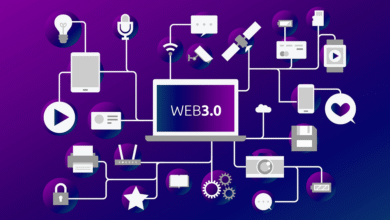The Blockchain Revolution: How It’s Disrupting Business as Usual in 2023

Blockchain Revolution technology has taken the world by storm, revolutionizing the way we do business. From cryptocurrencies to supply chain management, the potential applications of this technology are endless. In this article, we will explore the impact of blockchain on business and the ways in which it is transforming industries.
What is Blockchain?
Blockchain is a decentralized, digital ledger that records transactions across a network of computers. Each block in the chain contains a cryptographic hash of the previous block, timestamp, and transaction data. Once a block is added to the chain, it cannot be altered or deleted, making it highly secure and tamper-proof.
Blockchain’s Impact on Business
The decentralized nature of blockchain eliminates the need for intermediaries, allowing for direct transactions between parties. This has the potential to reduce costs, increase transparency, and improve efficiency in a variety of industries.
- Finance: Blockchain is perhaps most well-known for its use in cryptocurrencies, such as Bitcoin and Ethereum. These digital currencies allow for secure, peer-to-peer transactions without the need for intermediaries like banks. Blockchain is also being used for traditional banking activities such as cross-border payments, remittances, and trade finance.
- Supply Chain Management: Blockchain can be used to track the movement of goods across the supply chain, from raw materials to finished products. This allows for greater transparency and accountability, reducing the risk of fraud and counterfeiting. Companies can also use blockchain to ensure ethical sourcing and sustainability in their supply chains.
- Healthcare: Blockchain can improve the security and privacy of patient data by creating a secure, decentralized network for storing and sharing medical records. This could potentially reduce healthcare fraud and streamline the sharing of medical information between providers.
- Real Estate: Blockchain can simplify the process of buying and selling property by providing a secure, tamper-proof record of ownership. This reduces the risk of fraud and ensures that property titles are accurate and up-to-date.
Read More:The Impact of AI on the Job Market: Opportunities and Challenges in 2023
Challenges and Opportunities
While the potential benefits of blockchain are clear, there are also significant challenges to its adoption. Blockchain technology is still in its infancy, and many industries are still exploring its potential applications. The technology also faces regulatory challenges and questions around its scalability and energy consumption.
Despite these challenges, the blockchain revolution shows no signs of slowing down. As the technology continues to mature, we can expect to see even more innovative applications across a variety of industries. Businesses that embrace blockchain will have a competitive advantage, while those that fail to adapt may be left behind.
Advantages:
The advantages of the blockchain revolution are numerous and far-reaching, and they are transforming the way we do business in a variety of industries. Some of the key advantages of blockchain technology include:
- Increased security: Blockchain provides a highly secure system for storing and transmitting data. Once a transaction is recorded on the blockchain, it cannot be altered or deleted, making it virtually impossible for hackers to tamper with.
- Decentralization: Blockchain eliminates the need for intermediaries in transactions, allowing for direct transactions between parties. This reduces costs and increases efficiency, while also making the process more transparent.
- Improved transparency: Blockchain provides a transparent system for tracking transactions and data across a network. This can help to reduce fraud and increase accountability in industries such as finance and supply chain management.
- Cost savings: By eliminating intermediaries and improving efficiency, blockchain can help to reduce costs for businesses across a variety of industries.
- Faster transactions: Blockchain transactions can be completed in a matter of seconds, compared to traditional banking transactions that can take days or even weeks.
- Greater privacy: Blockchain can provide a secure and decentralized system for storing and sharing sensitive data, such as medical records or financial information.
- Innovation: The decentralized nature of blockchain allows for innovation and experimentation in a variety of industries, from finance to real estate to healthcare.
In summary, the advantages of the blockchain revolution are numerous and far-reaching, and they are transforming the way we do business across a variety of industries. From increased security and transparency to cost savings and faster transactions, blockchain technology is providing innovative solutions to some of the biggest challenges facing businesses today.
Read More: The Crypto Rich List: The 50 Richest People in Crypto World
conclusion:
the blockchain revolution is transforming the way we do business in unprecedented ways. This innovative technology offers a secure, decentralized, and tamper-proof system that enables direct transactions without intermediaries. Blockchain has the potential to increase transparency, reduce costs, and improve efficiency across industries such as finance, supply chain management, healthcare, and real estate. Despite challenges around scalability, regulation, and energy consumption, the blockchain revolution shows no signs of slowing down. Businesses that embrace blockchain technology can gain a competitive advantage by staying ahead of the curve and adapting to the changing landscape of business. The future of business is decentralized, and blockchain is leading the way.












2 Comments